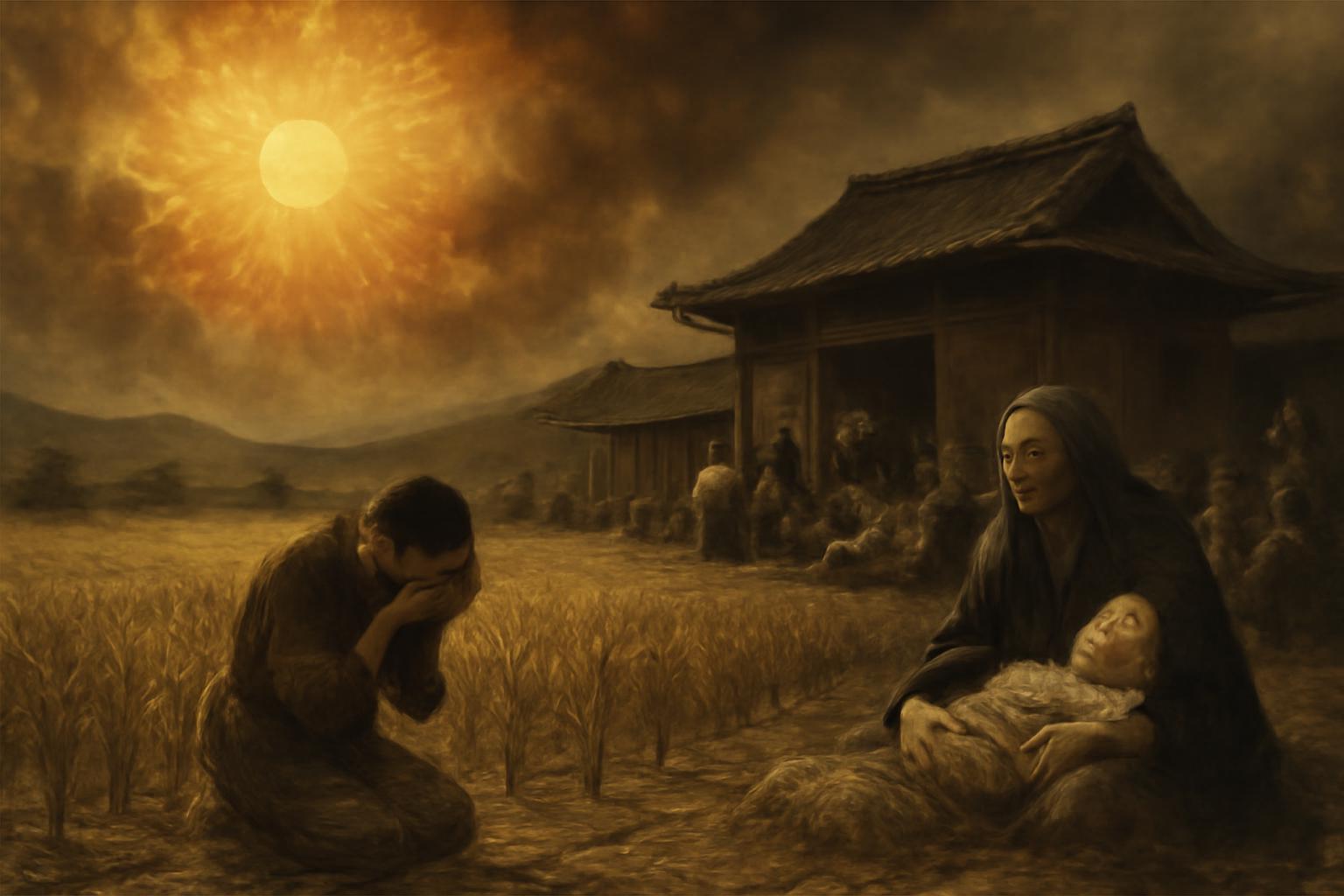Once more, the sun, that ancient tyrant—once venerated by the Greeks as Helios, formidable and radiant—now turns its implacable gaze upon our mortal coil with the pitiless glare of an uncaring cosmos. Forty-one-point-eight degrees! Isesaki roasts under the swaddling heat, as if the city itself were a character in a Sophoclean tragedy, prey to the whims of fate, punished not for hubris but for the relentless forward march of a modernity that refuses to see its own doom. The annals of 127 years, pathetic in their brevity, tremble and buckle before this new meteorological excess, this temperature that scrawls itself across the foreheads of men and women like the curse of Cassandra, whose prophecies were never heeded.
The news bears witness not only to the frailty of flesh—53,000 souls felled by the invisible claws of the sun, hospitals overflowing like the rivers in Euripides’ Bacchae after the writhing of the god—the gods, if they still exist, now weaponizing the climate as a new Nemesis. Year upon year, the beloved rice withers or bursts beneath the onslaught of heat, the once-stable rhythms of harvest perverted by the caprice of modern excess, and pestilence rides forth on shimmering waves, a plague of stink bugs replacing the locusts of Pharaonic legend. Prices climb, scarcity rears its gaunt head, and the ancient staple becomes the object of national agony, as if the gods themselves demanded tribute.
Elsewhere in the global theater, southern Europe reels as Prometheus' fire escapes its bounds—fires, warnings, bodies littering the stage in some grotesque reenactment of humanity’s estrangement from nature. This is the price of our supposed progress, of man’s vaunted “mastery” over the world. Our technological marvels, our digital distractions, have become the instrument of our slow demise. What Nietzsche foresaw—the death of God and the twilight of idols—is no longer a metaphysical quandary but a physical, planetary collapse. We, who fancied ourselves beyond tragedy, are now its principal actors, bound not by Will but by consequence.
The world grows hotter, not just in weather but in the fever-pitch of confusion, alienation, and cultural disintegration. We have traded myth for mechanism, reverence for reductionism, ritual for routine. Into this abyss we stumble, scorched and bewildered, the children of a civilization that once aspired to the stars, now reduced to praying for shelter from the sun. In the mirrored shards of our broken idols, one sees not salvation, but the inexorable decline of Western culture—a drama unspooling towards its nihilistic denouement, where all that remains is the longing for a meaning now lost.
